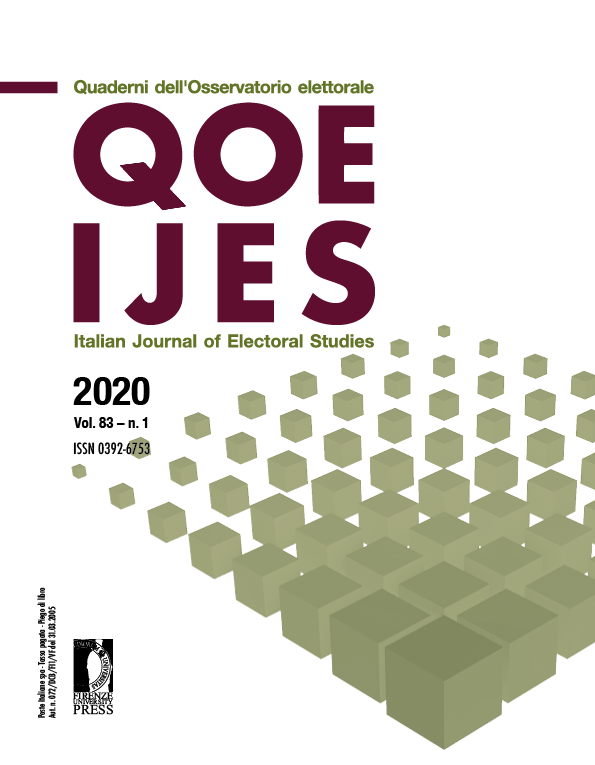The representative deficit in different European Party Systems: an analysis of the elections to the European Parliament 2009-2014
Published 2020-07-28
Keywords
- Elections,
- voting advice applications,
- representation
How to Cite
Abstract
This paper explores the extent to which different party systems in Europe effectively represent their citizens. We argue that many European countries suffer from a “representative deficit”, which occurs when a significant portion of citizens have to vote for a political party whose stated views are actually quite different from their own. We measure the extent of this deficit in different European countries using data from EU Profiler and euandi, two Voting Advice Applications which served millions of users during the EP elections in 2009 and 2014 respectively. We find wide variation in the extent to which political parties are accurately tuned in to the preferences of their voters, a variation which is not clearly linked to the number of political parties or the proportionality of the electoral system. We attempt to explain some of this variation, and explore the reasons why some party systems offer better representation than others.


